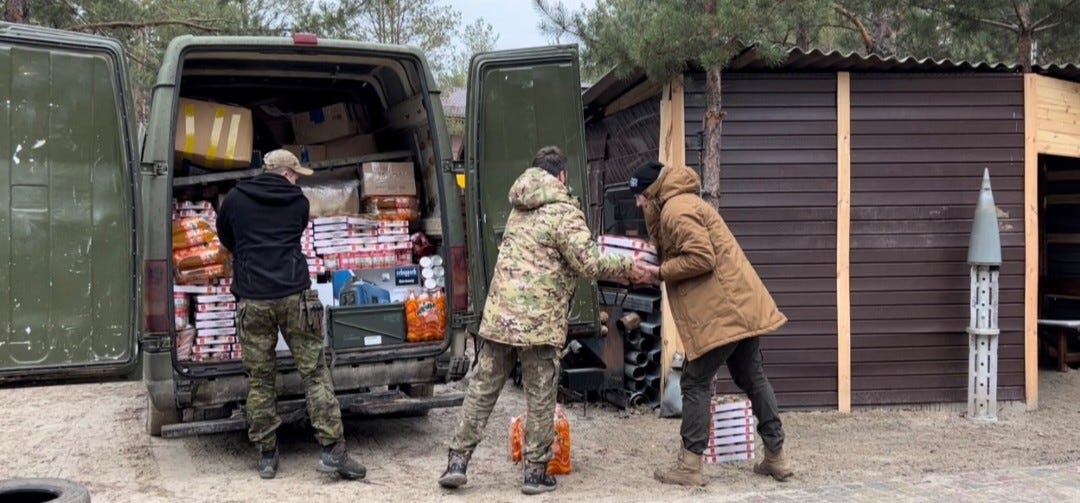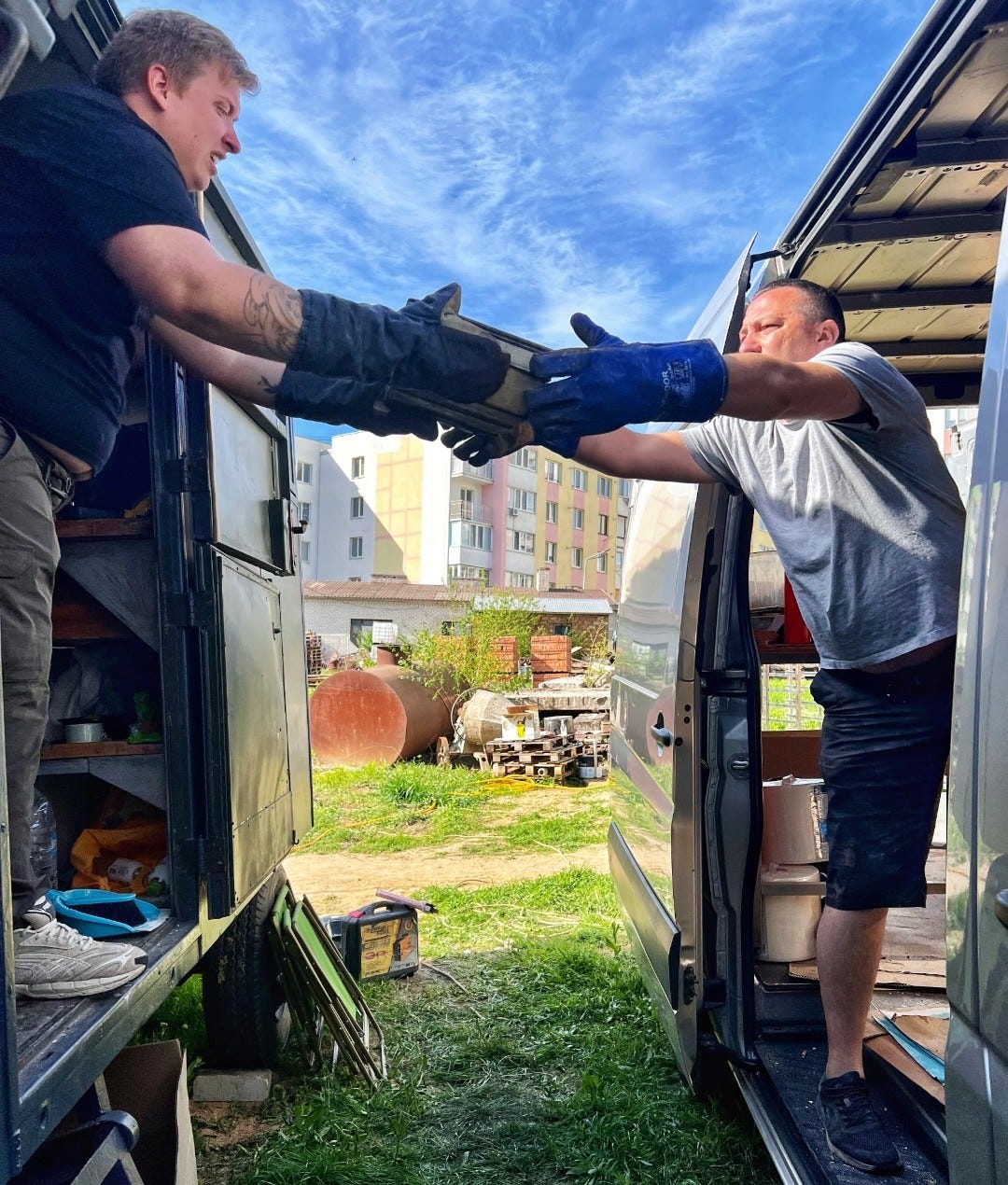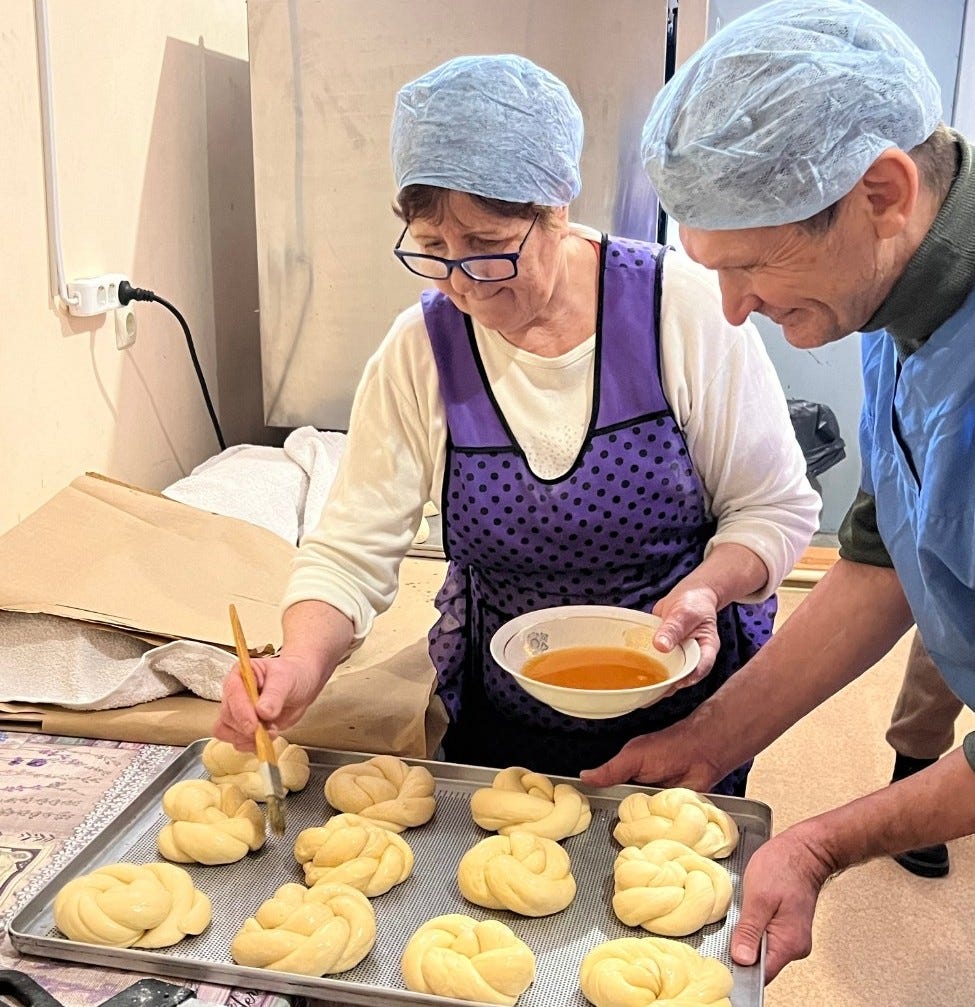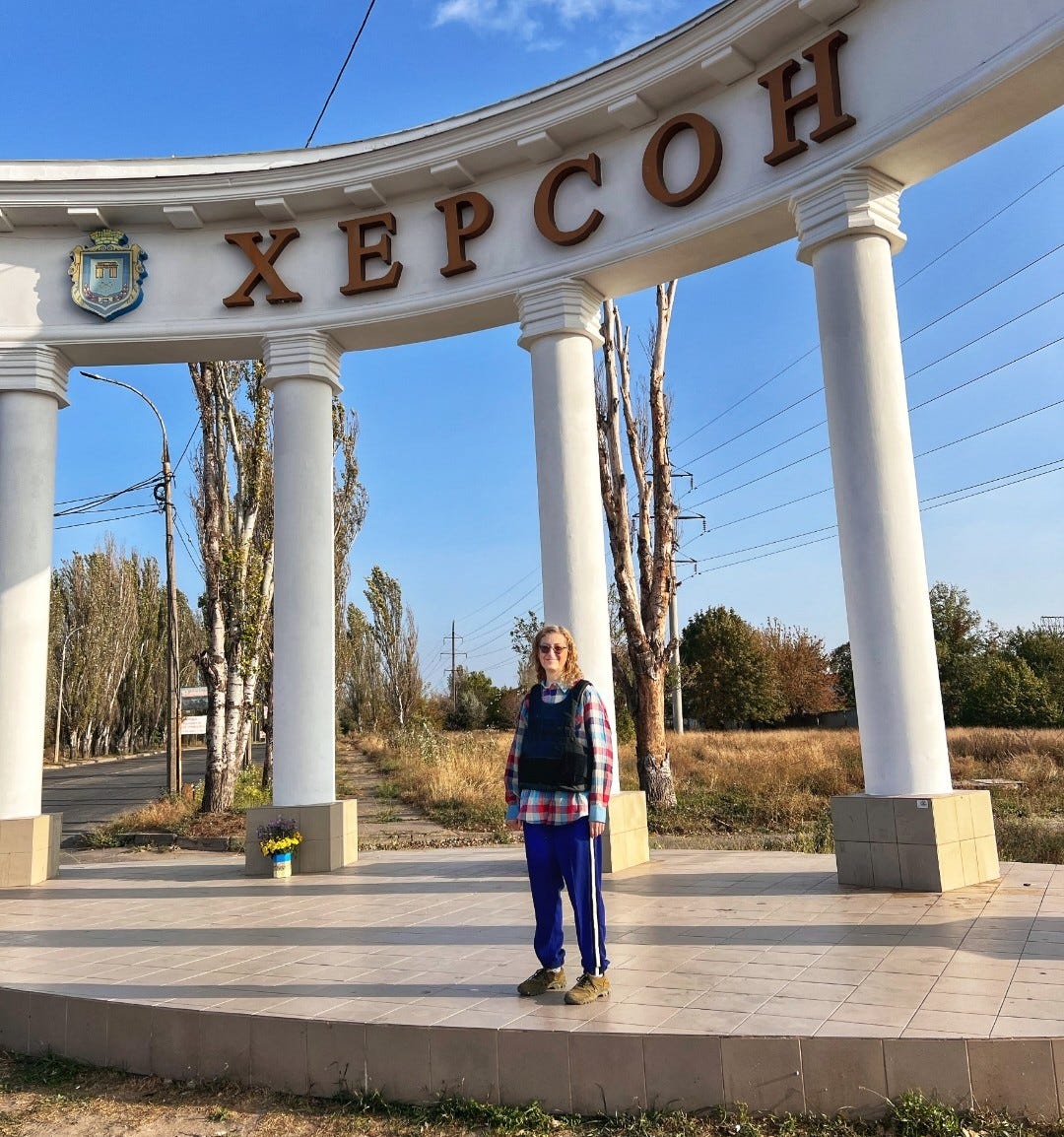BLITZ INTERVIEW: Felicity Spector is a British TV producer with a passion for food and Ukraine
In 2022, Spector organized a bread convoy to Ukraine - and then thought "why stop here?" Today she works with Ukrainian food and baking projects, spending all her spare time in Ukraine.
Felicity Spector
Where are you from? And where are you now? How and why did you end up in Ukraine?
I am writing this on a flight from Chisinau to London. I left Odesa early this morning for the long bus ride into Moldova. There were two air alarms as we drove out of the city because Russia was firing Kinzhal missiles all over the place. It always feels strange crossing into Moldova, where suddenly people can go about their lives in peace without wondering what is flying through the skies to threaten their homes. As everyone should live, of course.
I am from London and a few months after the full-scale invasion I ended up in Ukraine after organizing a convoy to take baking equipment and supplies to a place in Kyiv whose warehouse had been totally destroyed in a rocket attack.
I had been in touch with them and asked what they needed and realized that I knew a lot of UK bakeries and suppliers who might have spare equipment lying around. Sure enough, they did and were more than happy to donate it. Then I found a fantastic group called Sunflower Aid who drove it all - and me - in 4 vans from London to Kyiv. The bakery used it to continue humanitarian work, making free “volunteer bread” for displaced people and defenders.
I then met up with the wonderful Odesa-based volunteers behind the non-profit Bake for Ukraine and started helping them support small bakeries across Ukraine, which give away free bread to those in need. I’ve been going back to Ukraine regularly ever since, traveling all over the country to visit the bakeries and do what I can to help volunteers.
I save up all my annual leave from work and occasionally take extra unpaid leave when I can arrange it. Prior to this I had never organised a convoy or anything like it but I thought that doing something practical and working with Ukrainian volunteers on the ground was a much more useful response to the horrific actions of Russia than just feeling helpless and angry.
What kind of work did you do previously? Where?
I still have the same job I started in 1989 - I work as chief writer for a nightly one-hour TV news program based in London. I was a Moscow bureau producer in 1991-2, a time of fundamental change in the former USSR. It seemed a bit more hopeful for a while, but it was a depressing and rather miserable place to work. I left that posting, resolving never to go to Russia again! The news show is a good place to work, so I’ve stayed there for the past 35 years - apart from a sabbatical taking a master’s degree in US politics at the Harvard Kennedy School in 1999-2000. Thank you to the Fulbright scholarship for funding that!
How has the war in Ukraine changed your life? Changed you personally?
It’s changed my life enormously. Most of us in the West don’t realize what we have, that peaceful skies and our genuine freedoms shouldn’t be taken for granted.
I did travel numerous times around the Soviet Union in the 1980s so I had some insight into the arbitrary restrictions on freedom which the communist party had imposed. But now I truly appreciate what it’s like to be woken at night by explosions, to be thankful for the skill and courage of air defence, and I’ve seen the sheer wanton destruction in frontline cities and the areas which have been liberated from Russian occupation.
Talking to people who have lived through that certainly puts other more trivial worries into perspective. I do recognize the privilege I have in being able to take a bus or a train across the border and return home. I always try to understand the unbearable stress of Ukrainians who are seeing this happen to their homes and their families and how much the peace and safety that we in the West have depends on their bravery and resistance. I have also come to realise how much we can do as individuals, even a simple act of solidarity or kindness goes a long way. Then, take the next step: why stop there?
I still don’t think of myself as an especially brave person. Yes, I have been to places like Lyman, Kramatorsk, and Kherson, but I still ran out of the room the other day in Odesa when a giant beetle flew in through the window. That really crossed the line!
What has surprised you most about Ukrainians these past couple of years?
I have made so many great friends here, and all of them are so incredibly welcoming and go out of their way to help despite the horrible times they are going through - resilience doesn’t begin to describe it! Of course, they are human, exhausted by all the long years of relentless stress and frustrated by the endless challenges everyone has to deal with… But they still manage to open new businesses and deliver food to front-line communities, replace shattered roofs and windows, and get up at six am after a night of air alarms to do their volunteer work and sign up to defend the country, willingly and without complaint.
It is a very surreal thing to hear a loud explosion from a ballistic missile landing, then go back into the coffee shop to finish your drink about 5 minutes later - everyone knows this is anything but normal, but they carry on living their lives with fortitude and grace.
I have been constantly astonished and impressed by the number of people who work hard at their jobs, look after family all week, climb into a van, and drive hundreds of miles through really dangerous places close to the front line to deliver supplies or help evacuate people and pets. And they don’t seek any special reward or recognition for it.
I do obviously hear the frustrations about bureaucracy, unhelpful political or military decisions, and so on. But Ukrainian democracy and free speech are undoubtedly vibrant: everybody has their say, and friends always warn me, “We are not like you British with your ‘oh no worries, it’s fine’ … we tell it like it is.” And don’t get me started on the Ukrainian sense of humor… respect.
What are the plans for your work in Ukraine?
I am currently finishing a book, a collection of stories about people who work or volunteer in food and how they’ve kept the country going during the full-scale war. I have been so privileged to meet people who are doing such extraordinary and selfless work, and I only hope that I can do their stories justice. It is due to be published in May, so you can all read it then.
I will also continue working as much as I can with Bake for Ukraine as we expand our activities with our mobile bakeries and take on new projects into the next year.
We currently have one mobile bakery in Mykolaiv making bread for the Kherson region, and some wonderful supporters in the US have just raised funds for us to repair two more mobile bakeries we managed to acquire. Sometimes, I think maybe I will take a holiday in New York or something, but then I realize that I don’t want to use any of my precious time off without going to Ukraine.
How do you see the war ending and Ukraine returning to a ‘normal life’?
Of course, I want this more than anything. I just read about Zelenskyy’s meeting with Biden and the latest military aid package from the US and hope that will provide more tangible support. I am not allowed to comment on politics directly. Still, I can see the huge frustration Ukrainians have with this embargo on them striking airfields and military bases deeper inside Russia. To sit in Kharkiv or Zaporizhzhia and be unable to stop the horrific and relentless bombardment of civilian homes and infrastructure with KAB glide bombs when you know exactly where the aircraft are taking off - well, you can appreciate why people say it makes no sense.
Perhaps this embargo will be lifted. Ukrainians could then use everything they have to defend life and push the Russians out. The alternative does not bear thinking about.
Tell us one thing you don’t think people abroad know about Ukraine – but they really should?
The food and coffee scene in Ukraine is incredible. I especially love syrniki—small curd cheese pancakes served for breakfast (or any time, really!)—usually with jam or berries and sour cream. Sometimes, cafes make a savoury version with smoked salmon or tomatoes and greens.
I am going to make it my mission to make syrniki a thing in the UK, because what’s not to love about cheesecake for breakfast? Ukrainian bread is also absolutely superb. From the basic white palyanytsya loaf to deliciously complex rye or buckwheat bread, the quality of Ukrainian grain absolutely shines through.
The sheer diversity of Ukrainian cuisine is hugely impressive. In Odesa, for example, there’s a vast array of unique dishes, born from its rich cultural mix of Ukrainian, Jewish, Greek, Italian, and many other traditions. Hospitality is legendary too - if someone invites you for ‘just a cup of tea’ then be prepared for them to cover the entire table in different dishes of food, and they won’t let your plate be empty for a second. Even when I visited a Marine battalion, they immediately invited me to join them for lunch, including the best borsch of my life. There was even cake!
You can read much more about the work of Felicity Spector at










Such a heart-warming interview💙💛Thank you
Will be looking forward to Felicity's book
Thanks so much for the interview from the front line of Ukraine! Looking forward to read Felicity Spector's book with Ukraine stories!